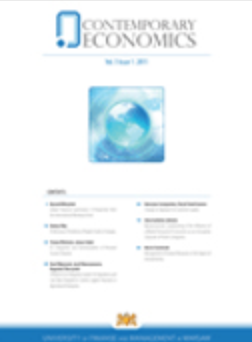Classes in Maximizing Shareholders’ Wealth: Irving Fisher’s Theory of the Economic Organization in Corporate Financial Economics Textbooks
Classes in Maximizing Shareholders’ Wealth: Irving Fisher’s Theory of the Economic Organization in Corporate Financial Economics Textbooks
Author(s): Tiago Cardao-PitoSubject(s): Economy, Supranational / Global Economy, Business Economy / Management, Higher Education , Financial Markets, Accounting - Business Administration
Published by: Akademia Ekonomiczno-Humanistyczna w Warszawie
Keywords: financialisation; financial economics; finance; Irving Fisher; textbook; economic sociology;
Summary/Abstract: Corporate financial economic programs are almost universally featured in economics and management degrees and, therefore, are an essential component of the culture-building process for current and future economists and managers. Nevertheless, these programs are not restricted to financial affairs. A survey of contemporary academic textbooks in corporate financial economics shows that these books are based on promoting Irving Fisher’s (1906) specific theory of the organization, which advocates that organizations exist to create wealth for their owners/shareholders. This theory has three key premises. 1) The “correct” equity/stock prices are equal to future cash flows that are payable to the organizations’ owners/shareholders. 2) The purpose of the firm and its managers is to maximize the value of the equity/share prices. c) Hence, their purpose is to maximize the cash flows (wealth) payable to owners/shareholders. None of these premises has been clearly demonstrated empirically. Yet, economic and business schools deliver lectures based on this rhetoric every year to thousands of students who will later hold influential roles in society.
Journal: Contemporary Economics
- Issue Year: 11/2017
- Issue No: 4
- Page Range: 369-381
- Page Count: 13
- Language: English

